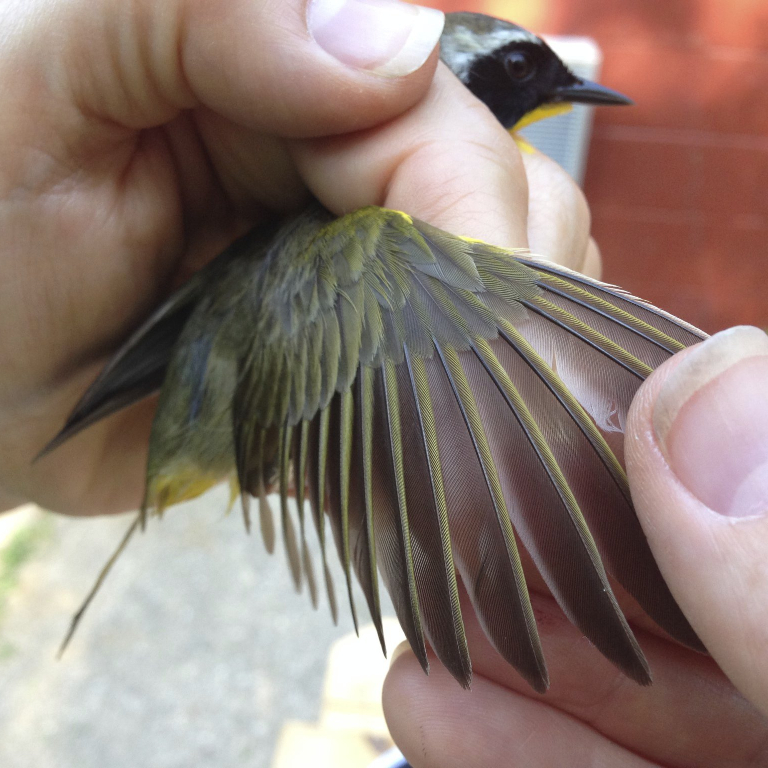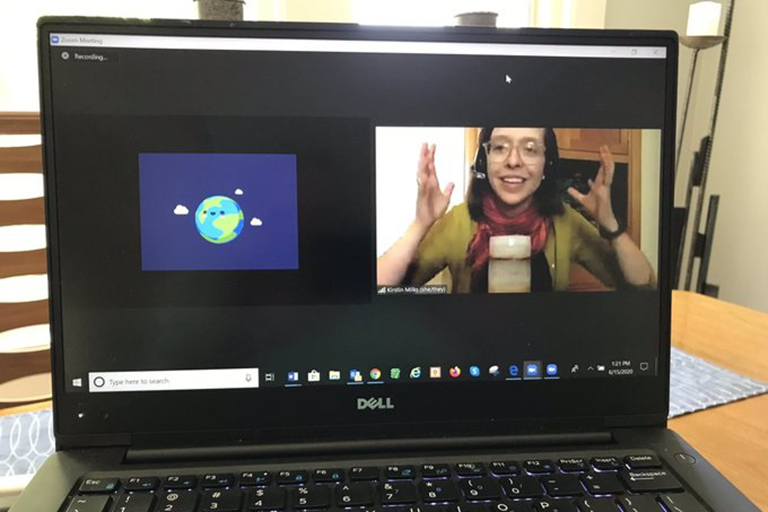Summers at the Environmental Resilience Institute (ERI) have typically been a time of face-to-face meetings and events designed to connect Indiana youth, teachers, local governments, and others to environmental change experts and resources. The COVID-19 pandemic, however, forced ERI staff and affiliates to quickly adapt programming to a new reality of physical distancing and online interaction.
Despite the drastic change in format, ERI continued to advance its education and outreach mission this summer, successfully engaging Hoosiers across the state. ERI-sponsored outreach held this summer include a bird science camp for youth, a pair of teacher workshops on climate science and environmental change, and collaboration with Indiana cities to create climate action plans that address local greenhouse gas emissions.
In early June, ERI coordinated a virtual bird camp for youth in conjunction with the WonderLab Museum of Science, Health, and Technology. ERI Research Fellow Adam Fudickar and affiliates Eve and Sam Cusack joined forces to create a stimulating, week-long camp that gave participants an in-depth look at how researchers identify, observe, and study birds at Kent Farm, an IU Research and Teaching Reserve located east of Bloomington.
As part of the camp, the Cusacks delivered daily Zoom conference calls at Kent Farm to show youth how researchers catch birds in special netting, record information about each specimen, and place bands on their legs to track them. They led campers through bird banding exercises and gave presentations on the background and habits of each netted bird. To help camp participants deepen their understanding of ornithology, the Cusacks also provided each camper with a binder filled with activities and resources that they completed over the course of the week.
Fudickar and Cusack said they were very pleased with the response for the virtual camp and hope to expand its reach in the coming years. "I hope that all the kids who attended would be interested in coming to an in-person version of the camp next year," said Eve Cusack. "I thought it was a lot of fun."
In late June, ERI affiliates conducted the fourth annual Educating for Environmental Change Summer Science Institute, a pair of teacher workshops designed to help educators sharpen their curriculum on climate science and environmental change. A total of thirty-nine educators from Indiana and beyond participated virtually in the workshops. Indiana University researchers and experts volunteered their time to present on topics relevant to environmental change, and workshop coordinators curated and shared resources and lesson plans suitable for either in-person or online instruction.
"When you go to an online setting, you have to do a little more preparation," said Adam Scribner, Director of STEM Education Initiatives for the Indiana University School of Education and one of the organizers of the workshop. "We had to think about the main topics we wanted to touch on, and what takeaways we wanted people to have. We all put a lot more thought into that this year."
One of ERI's most visible summer programs is the Resilience Cohort, an initiative designed to help local governments across the state measure local greenhouse gas emissions and create their own comprehensive climate action plans to mitigate those emissions.
This work, conducted in partnership with Sustain IU's Indiana Sustainability Development Program, typically involves summer meetings with local government staff and the placement of student externs at participating communities across the state.
In light of pandemic-related health guidelines, student externs offered cohort members remote support, helping communities engage residents on local action planning through online and traditional media. The externs planned and organized virtual town halls to source feedback from residents, and ERI developed a survey template cohort members could use to help gauge public opinion on proposed greenhouse gas reduction strategies.
"We tried to help local governments feel more comfortable talking on the radio, doing podcasts, and speaking on live video during public engagement meetings," said Webster.
The pandemic may have even strengthened local governments' commitment to addressing climate change, which exacerbates existing social and environmental problems, Webster said. "As the pandemic and racial justice movements across the country reveal, climate change cannot be viewed in isolation. It must be treated as an intersectional crisis."




